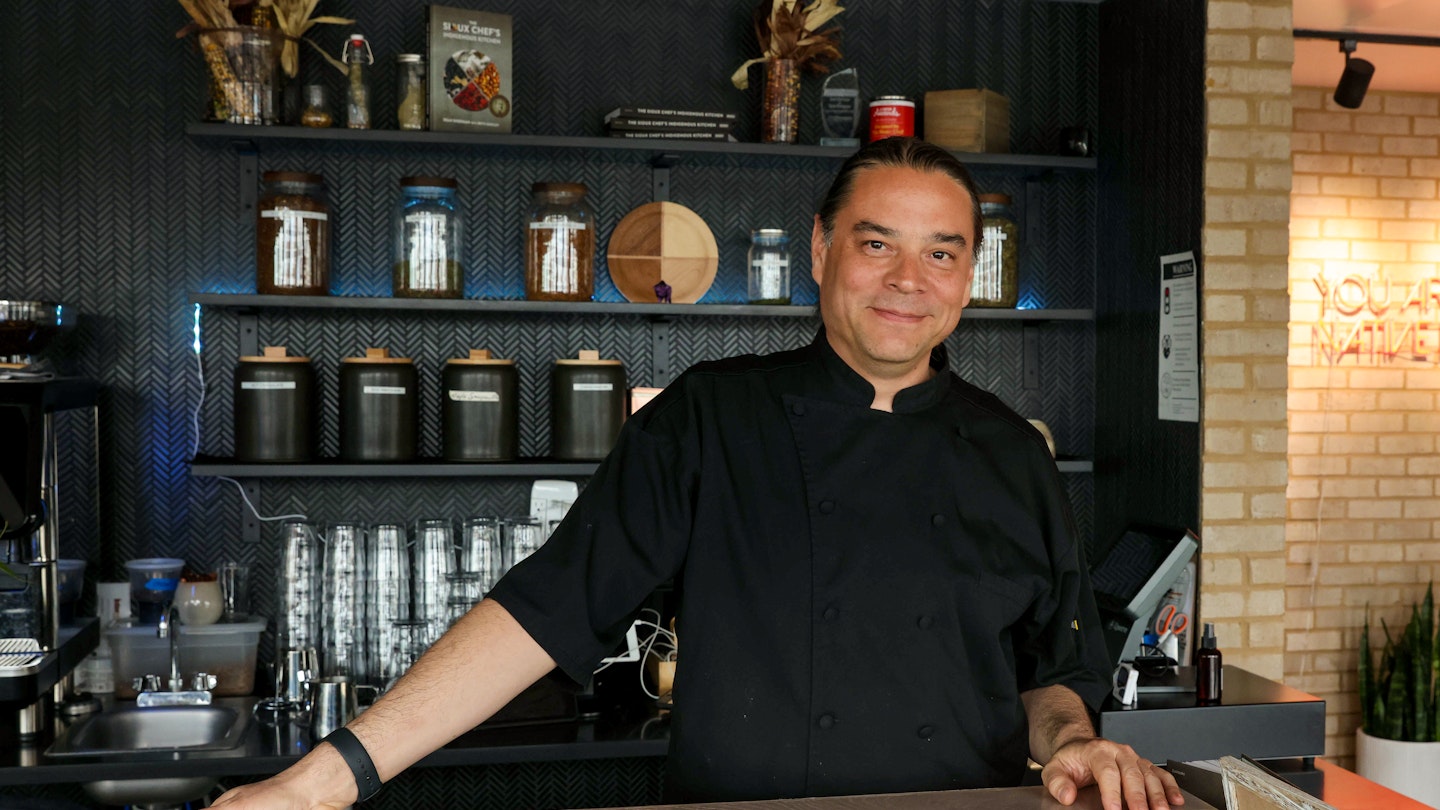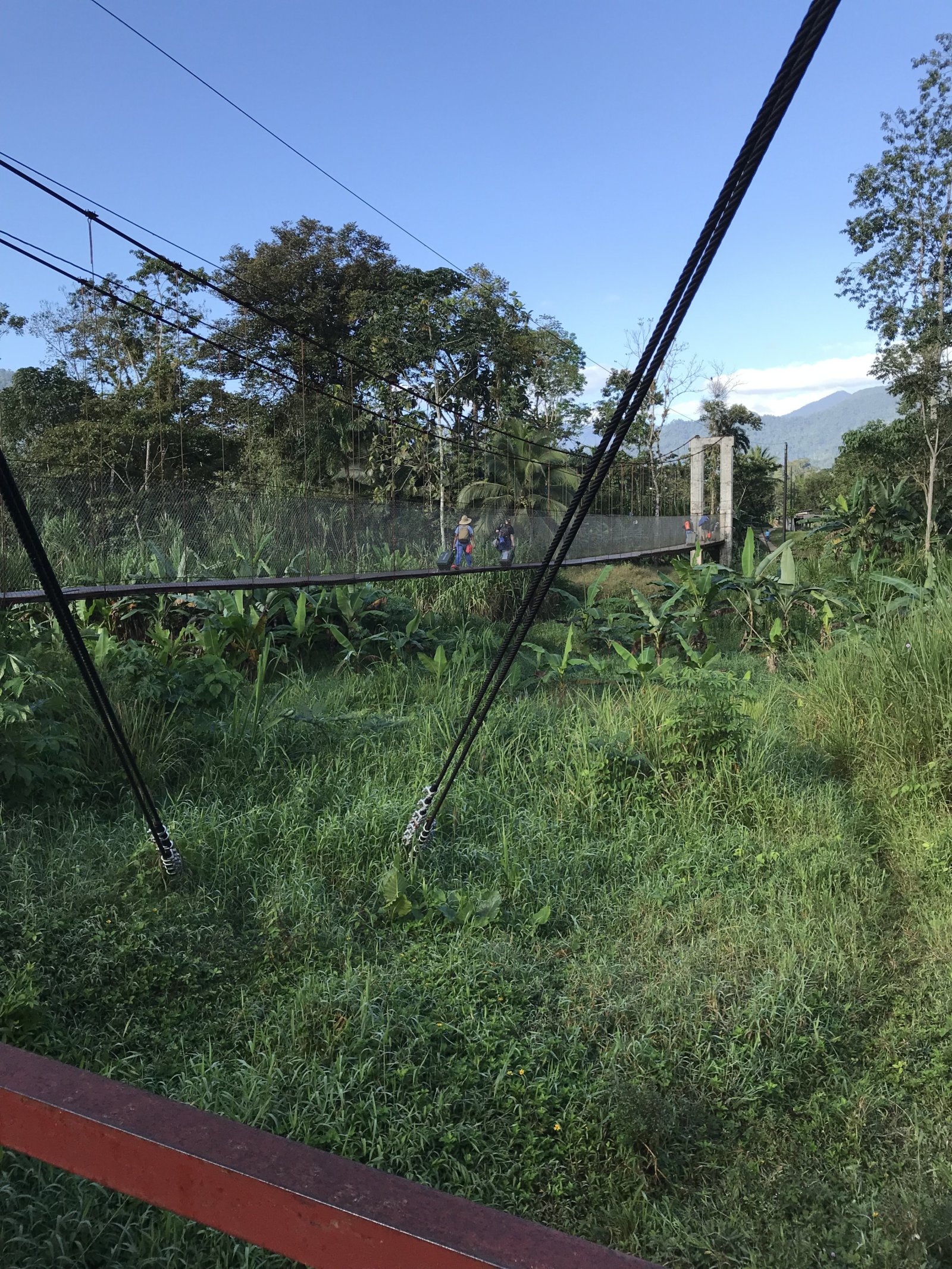Owamni by The Sioux Chef: Revitalizing Native American Cuisine
At Owamni by The Sioux Chef, Sean Sherman and his team are redefining what “local” means through the lens of Native American tradition.
Editor’s Note: On June 13, 2022, Owamni by The Sioux Chef won the 2022 James Beard Award for Best New Restaurant.
Sean Sherman’s Culinary Journey
Restaurants weren’t a significant part of Sean Sherman’s childhood on Pine Ridge Reservation in South Dakota. Although about the size of Connecticut, Pine Ridge had no restaurants when Sherman was growing up. This changed after Sherman moved to Spearfish at the age of 12, where he started washing dishes and bussing tables at a local steakhouse. Ever since, restaurants have played a crucial role in his life.
Today, with over 30 years of experience, Sherman has worked with several restaurants across various cuisines, including French, Spanish, and Japanese. However, he realized roughly a decade ago that while he could easily name countless European recipes, he had limited knowledge about Lakota recipes. Upon searching online, he noted a scarcity of Native American restaurants and cookbooks.
Revitalizing Tradition
Motivated by the lack of visibility of Indigenous foods in the culinary world, Sherman began reconnecting with Indigenous culinary traditions. He spoke with family elders, studied history, identified wild plants, and cooked using these traditional methods. In 2014, Sherman launched The Sioux Chef with business partner Dana Thompson, focusing on reclaiming and revitalizing Native American cuisine and food systems. In 2017, he released The Sioux Chef’s Indigenous Kitchen, an award-winning cookbook.

Last July, Sherman’s journey culminated in the opening of Owamni by The Sioux Chef, a restaurant serving modern Native American cuisine along the Mississippi River in Minneapolis. The restaurant quickly gained recognition, winning the prestigious 2022 James Beard Award for Best New Restaurant.
Thompson articulates the mission behind Owamni, stating, “Our primary aim is to employ people, foster Indigenous entrepreneurs, and reintroduce Indigenous foods to the community.”
A New Definition of “Locally Sourced”
Owamni is among a few Indigenous-owned restaurants across the U.S. that emphasize Native or Native-inspired cuisine, similar to Tocabe in Denver, Colorado, and Wapehpah’s Kitchen in Oakland, California. The dearth of Indigenous establishments stems from a painful history of colonization, leading to a loss of Native land, wealth, and culinary knowledge.
Thompson reflects on this loss: “These foods were systematically erased through forced assimilation. Our restaurant celebrates the resilience of our culture.” At Owamni, customers experience more than just satisfying their hunger; they connect with a rich cultural heritage.
A Unique Culinary Experience

With 574 federally recognized Indian tribes, there’s no single Native American cuisine. Owamni’s menu highlights Indigenous foods from across North America, focusing on those of the Dakota tribe. The restaurant adopts a “decolonized approach,” avoiding modern ingredients like cane sugar and dairy, and instead emphasizes game, fish, wild plants, and Native heirloom varieties. Additionally, Owamni sources ingredients from Indigenous and local producers.
A Note on Sustainability and Health
The innovative menu, offering modern takes on Indigenous dishes, caters to various dietary preferences, including gluten-free and dairy-free options. Owamni currently features a fixed-price tasting experience, showcasing dishes like venison tartare and bison tripe soup. Sherman notes, “We strive to honor our Indigenous ancestors by creating modern Indigenous food that is not only nutritious but also celebrates our heritage.”

Despite the challenges of launching during the pandemic, Owamni has maintained a solid following, often fully booked. Many patrons have traveled great distances, even from abroad, to dine at the restaurant.
Reviews from diners emphasize the unique connection to Indigenous heritage through their culinary experience. One reviewer mentioned, “Eating at Owamni was a reminder of our ties to the Native peoples and the land.” Another echoed this sentiment, noting that the food left them feeling nourished and inspired.
Community and Future Endeavors
Owamni’s opening saw employment for around 80 individuals, with over 70 percent identifying as Indigenous. General manager Kareen Teague highlights the unique connection to food through heritage, stating, “Working here has deepened my appreciation for our traditional cuisine.”
In 2018, Sherman and Thompson founded North American Traditional Indigenous Food Systems (NāTIFS), a nonprofit aimed at enhancing access to Indigenous food knowledge and resolving health disparities within Native communities. The initiative includes a kitchen and training center focused on plant identification and culinary business practices rooted in Native traditions.
Therefore, Sherman envisions a future where Indigenous food businesses flourish across North America, fostering diversity, culture, and shared stories through culinary experiences.
This article was first published on March 18, 2022, and updated on June 15, 2022.





